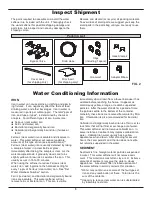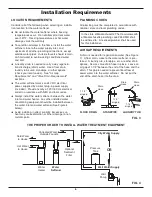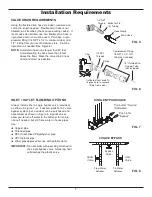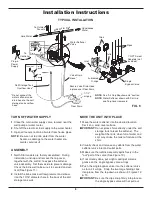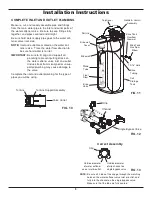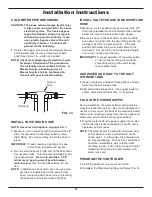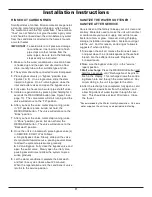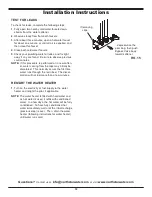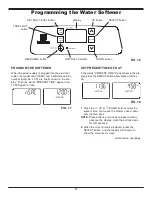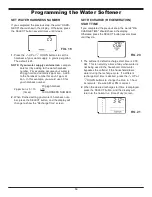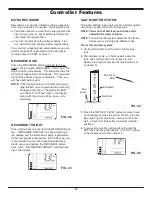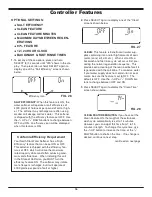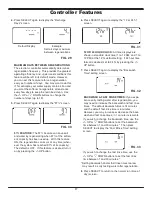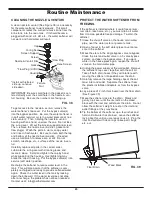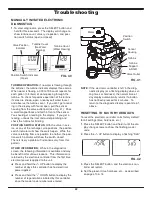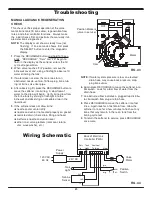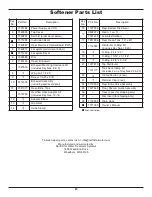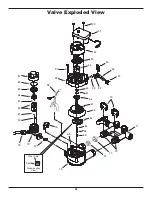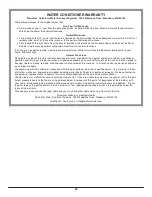
19
FIG. 37
Broom
Handle
Pencil
Mark
1” - 2”
Salt
Push Tool into
Salt Bridge to
Break
Routine Maintenance
Salt Bridge
Empty Space
Water Level
BREAKING A SALT BRIDGE
Sometimes, a hard crust or salt “bridge” forms in the
brine tank. It is usually caused by high humidity or
the wrong kind of salt. When the salt “bridges,” an
empty space forms between the water and the salt.
Then, salt will not dissolve in the water to make brine.
Without brine, the resin bed is not recharged and
hard water will result.
If the storage tank is full of salt, it is difficult to tell if
you have a salt bridge. A bridge may be underneath
loose salt. Take a broom handle, or like tool, and
hold it next to the water softener. Measure the dis-
tance from the floor to the rim of the water softener.
Then, carefully push the broom handle straight down
into the salt. If a hard object is felt before the pencil
mark is even with the top, it is most likely a salt
bridge. Carefully push into the bridge in several
places to break it. Do not use any sharp or pointed
objects as you may puncture the brine tank. Do not
try to break the salt bridge by pounding on the out-
side of the salt tank. You may damage the tank.
ADDING SALT
Lift the salt lid and check the salt storage level fre-
quently. If the water softener uses all the salts before
you refill it, you will experience hard water. Until you
have established a refilling routine, check the salt
every two or three weeks. Always add if less than 1/4
full. Be sure the brinewell cover is on.
NOTE:
In humid areas, it is best to keep the salt stor-
age level lower, and to refill more often to
avoid salt “bridging”.
Recommended Salt:
Nugget, pellet or coarse solar
salts with less than 1% impurities.
Salt Not Recommended:
Rock salt, high in impuri-
ties, block, granulated, table, ice melting, ice cream
making salts, etc.
Questions?
Contact us at:
or visit
www.northstarwater.com

